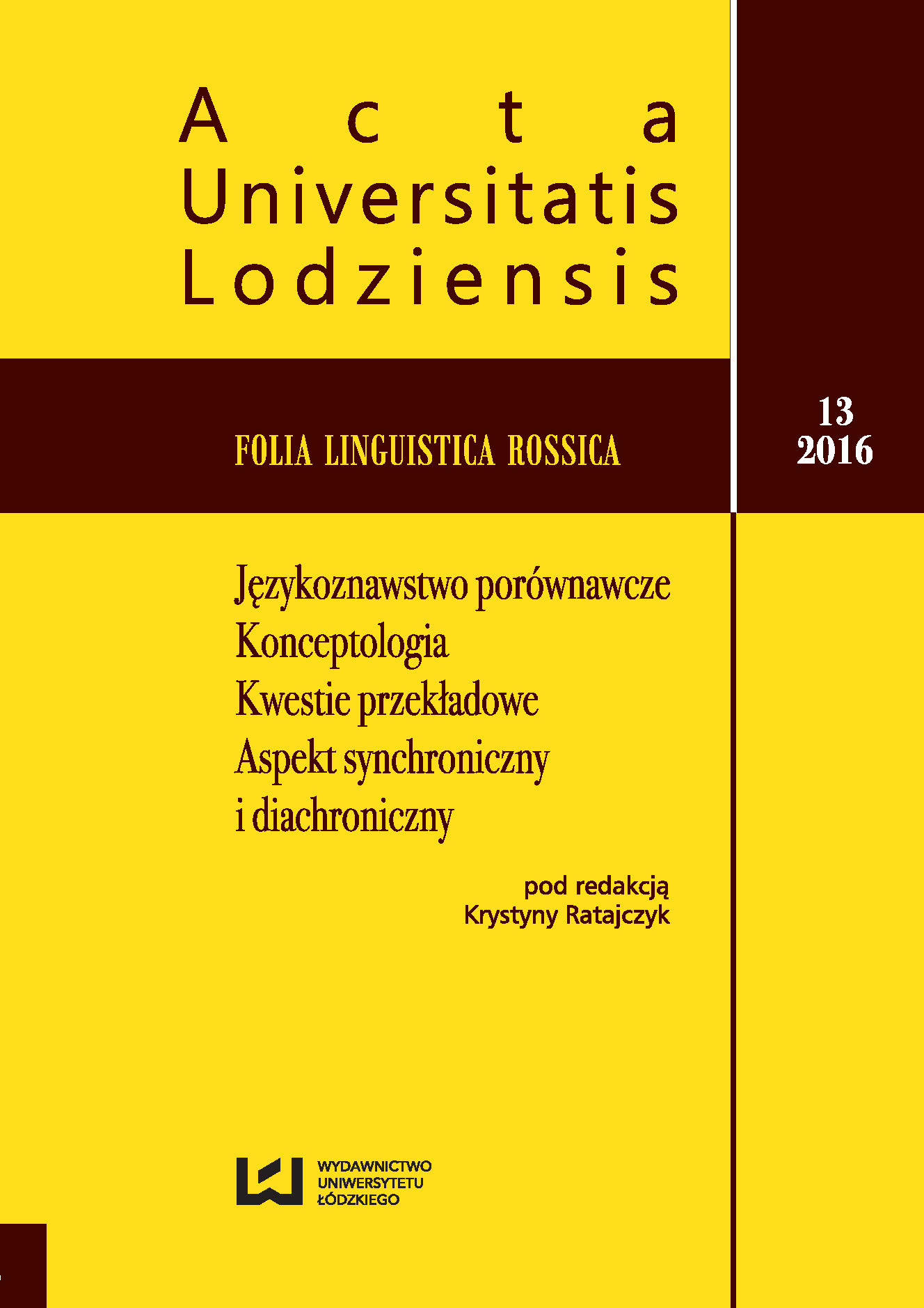Loan-word problems: variants of new foreign-language words in the Russian language
DOI:
https://doi.org/10.18778/1731-8025.13.04Keywords:
foreign-language neologism, variability, variants, allographic, spelling variants, phoneme-spelling variants, accentological variantsAbstract
The end of XX – the beginning of the 21st century in the development of the Russian language is characterized as the time of active replenishment of its dictionary structure by new foreign-language words and elements. The borrowing process and the development of loan-words is followed by variability of foreign-language neologisms that generates difficulties in their development. Materials of modern dictionaries find a tendency to increase in a share of the varying words as a part of foreign-language neologisms (from 2 % and even to 3% of a word-list). In dictionaries and texts the following types of variants are noted: allographic, spelling, phoneme-spelling, accentological, and also the variants of the combined type differing not less than two differential markers. The allographic variation which was considered as the phenomenon for the Russian language has assumed a considerable scale during modern time. Spelling and phoneme-spelling variants existence reflects insufficient extent of the word development. The considerable number of variants and a variety of the opposed markers, on the one hand, reflects a real picture of new foreign-language lexicon development. On the other hand, it extremely complicates lexicographic processing of such words and the characteristic of variants. The establishment of uniformity in writing and a pronunciation of foreign-language neologisms is an integral part of their development and a long and a difficult process.
References
Букчина Б. З. (1981), Орфографические варианты, [в:] Литературная норма и вариантность, Москва, с. 215–233.
Google Scholar
Букчина Б. З., Сазонова И. К., Чельцова Л. К. (2008), Орфографический словарь русского языка, 4-е изд., Москва.
Google Scholar
Габдреева Н. В., Гурчиани М. Т. (2012), Словарь композитов русского языка новейшего периода, Москва.
Google Scholar
Габдреева Н. В., Агеева А. В., Тимиргалеева А. Р. (2014), Иноязычная лексика в русском языке новейшего периода, 2-е изд., Москва.
Google Scholar
Гайнуллина Н. И. (1976), К вопросу о вариантах заимствованных слов в петровскую эпоху, Филологический сборник, вып. 17, Алма-Ата, с. 104–113.
Google Scholar
Иванова В. Ф. (1976), Современный русский язык. Графика и орфография, Москва.
Google Scholar
Картоев М. У. (1982), Орфографическая вариантность заимствованных слов и ее причины, «Русский язык в школе», № 3, с. 84–88.
Google Scholar
Нечаева И. В. (2011), Актуальные проблемы орфографии иноязычных заимствований, Москва.
Google Scholar
Толковый словарь русского языка начала XXI века. Актуальная лексика (2006), ред. Г. Н. Скляревская, Москва.
Google Scholar
Толковый словарь современного русского языка. Языковые изменения конца XX столетия (2001), ред. Г. Н. Скляревская, Москва.
Google Scholar
Щерба Л. В. (1958), Транскрипция иностранных слов и собственных имён и фамилий, [в:] Избранные работы по языкознанию и фонетике, Т. 1, Ленинград, с. 153–161.
Google Scholar
Downloads
Published
How to Cite
Issue
Section
License

This work is licensed under a Creative Commons Attribution-NonCommercial-NoDerivatives 4.0 International License.









